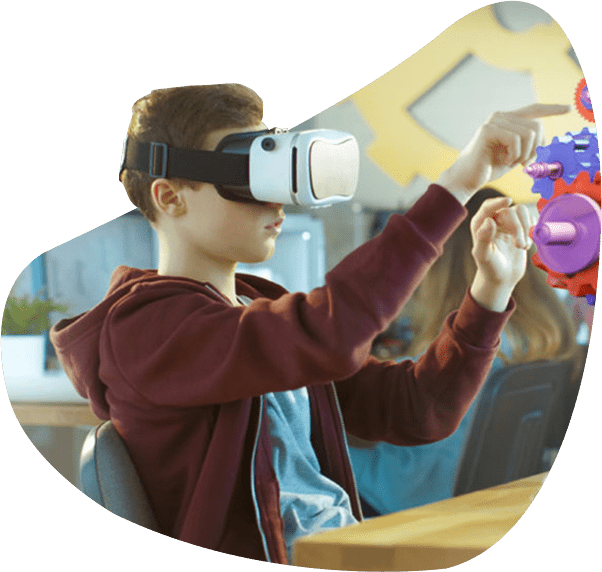Revolutionize Learning: Unleash the Power of VR Education with SMACAR
At SMACAR, we harness the transformative power of Virtual Reality (VR) to redefine educational experiences. VR in education is not just an advancement in technology—it’s a revolution in the way knowledge is acquired, skills are developed, and subjects are comprehended. By integrating VR into educational settings, we open up a world of possibilities that traditional learning environments cannot offer.
The education landscape is undergoing a dramatic shift. Traditional methods, while valuable, are evolving to embrace innovative technologies like Virtual Reality (VR). VR Education offers a transformative approach to learning, fostering deeper engagement, improved knowledge retention, and a more immersive educational experience.
The Impact of VR on Modern Education
SMACAR, a pioneering leader in virtual and 360° video production, is at the forefront of VR education solutions. We understand the evolving needs of educators and students. We develop user-friendly, state-of-the-art VR experiences that cater to diverse learning styles and subjects.
VR technology in education creates immersive and interactive learning experiences that engage students at a deeper level. These experiences are designed to enhance understanding, increase retention, and make learning more accessible to diverse learners across the globe.
VR Education: A Catalyst for Deeper Learning
VR education transcends the limitations of textbooks and classroom walls. It propels students into dynamic, interactive environments where they can:
- Become active participants: VR transforms learners from passive observers to active participants, fostering deeper engagement and exploration.
- Experience the impossible: Explore historical landmarks, journey into the human body, or travel the solar system – VR allows students to experience the abstract and the distant in a tangible way.
- Practice hands-on: VR simulations provide students with a safe and realistic environment to practice complex skills, conduct experiments, or participate in role-playing scenarios.
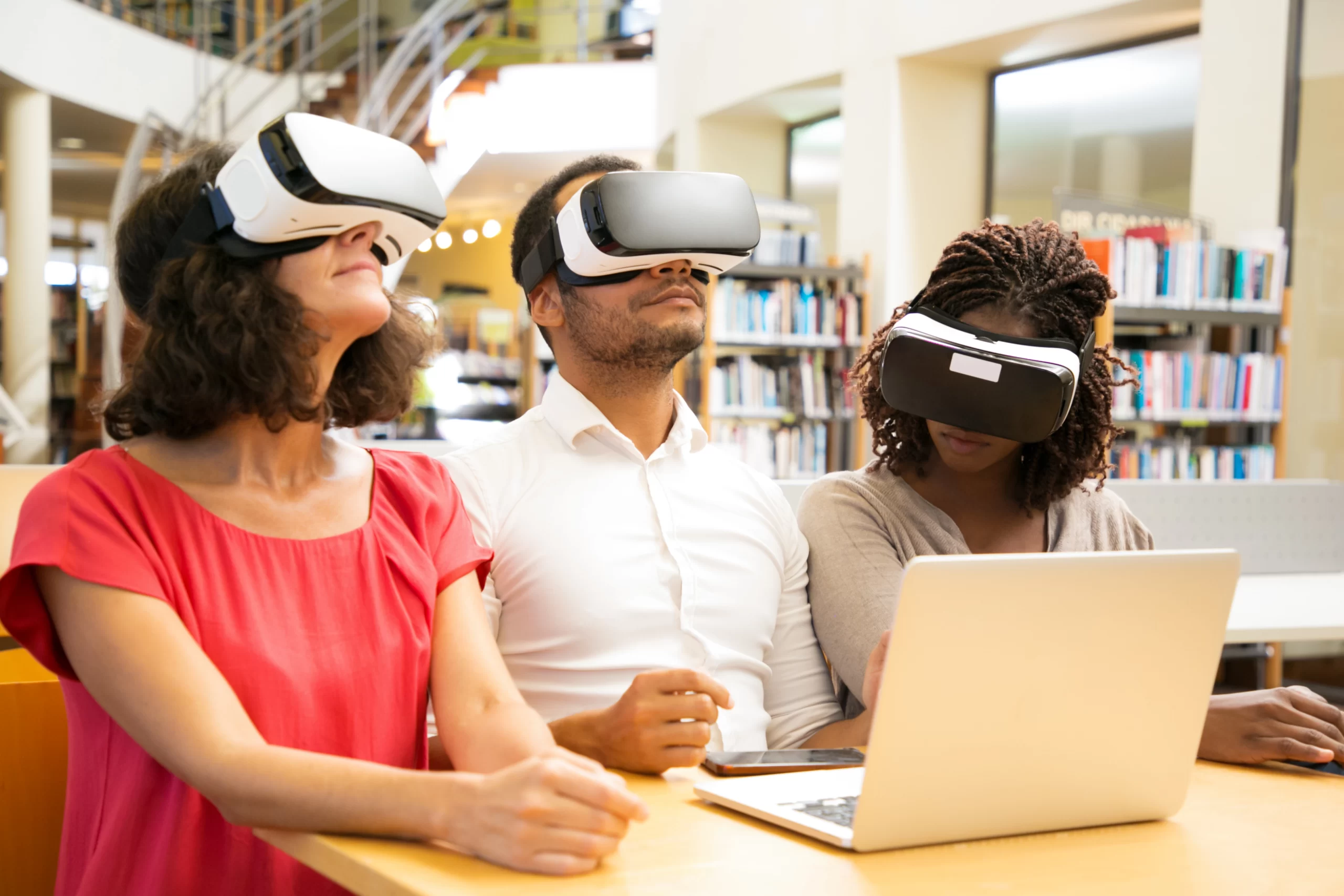
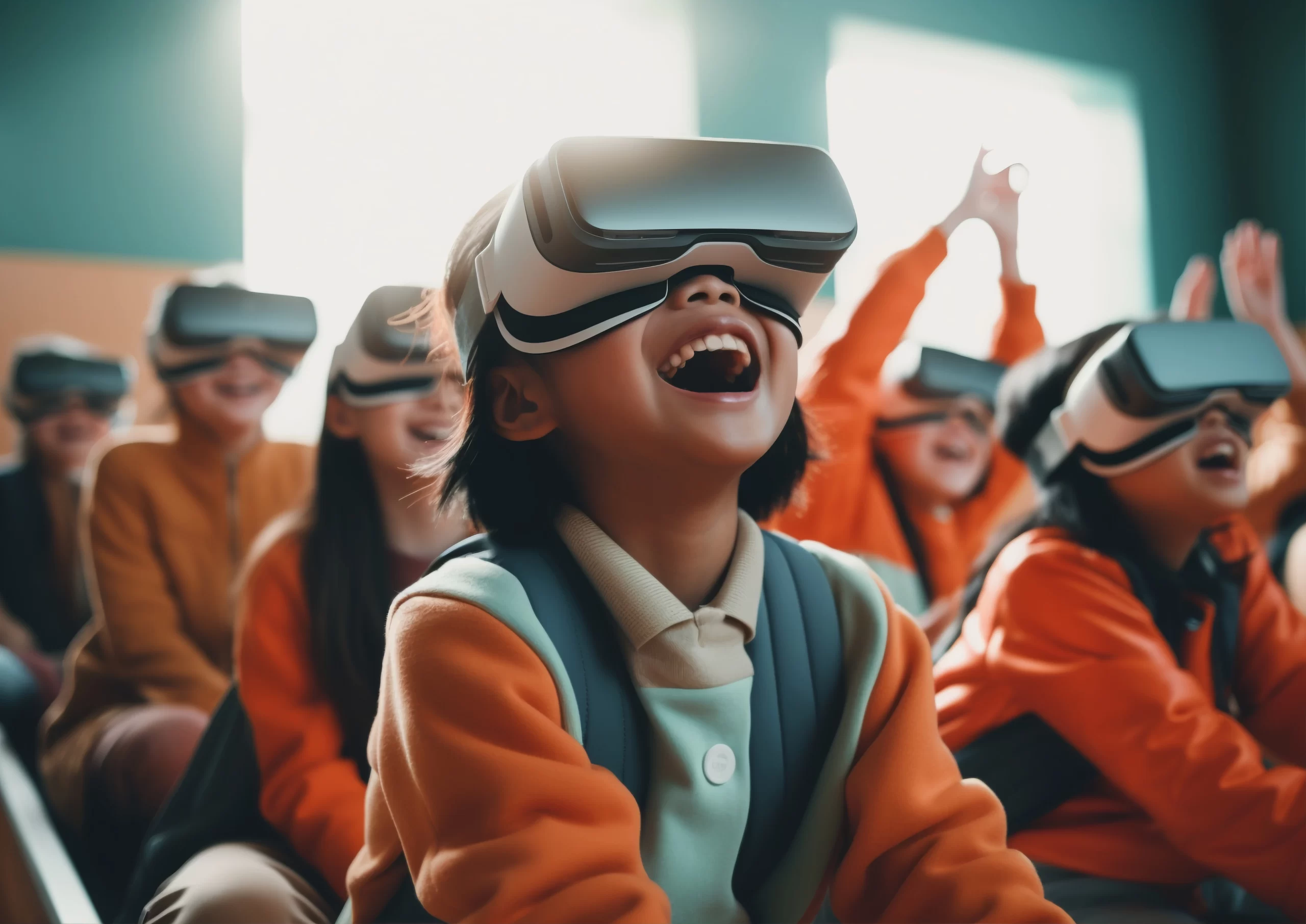
VR in Education: Benefits for Educators and Students
VR education benefits both educators and students, creating a more engaging and effective learning environment:
For Educators:
- Enhanced Curriculum Delivery: VR experiences can enrich lesson plans, making complex concepts easier to visualize and understand.
- Increased Student Engagement: VR fosters a more interactive learning environment, keeping students energized and motivated.
- Differentiated Instruction: VR caters to diverse learning styles, allowing educators to tailor lessons to individual student needs.
- Improved Knowledge Retention: VR experiences provide a more memorable learning experience, leading to better knowledge retention.
Why VR for Universities?
VR content offers numerous benefits for universities:
- Engagement: VR captures the imagination of students and holds their attention far better than textbooks or video alone. This heightened engagement leads to active learning and improved information retention.
- Interactivity: VR environments are interactive, allowing students to manipulate objects and experiment with settings, which deepens their understanding through hands-on learning.
- Inclusivity: VR can tailor experiences to meet diverse learning styles and needs, making education more inclusive for students with different abilities and preferences.
Core Benefits of VR for Education
- Memorable Learning Experiences: VR creates vivid learning experiences that students remember long after the lesson ends.
- Risk-Free Simulation: Whether it’s performing a complex science experiment or practicing heavy machinery operation, VR allows students to take risks and learn from their mistakes without real-world consequences.
- Global Classroom: VR can connect students from around the world in a single virtual classroom, fostering global collaboration and exposure.
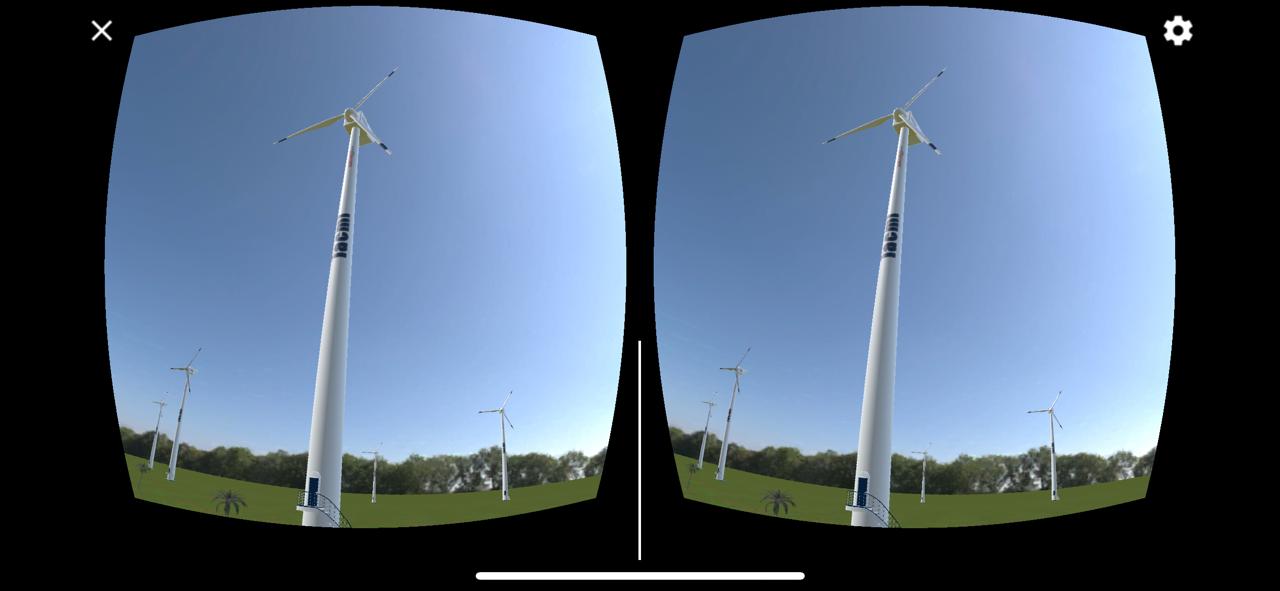
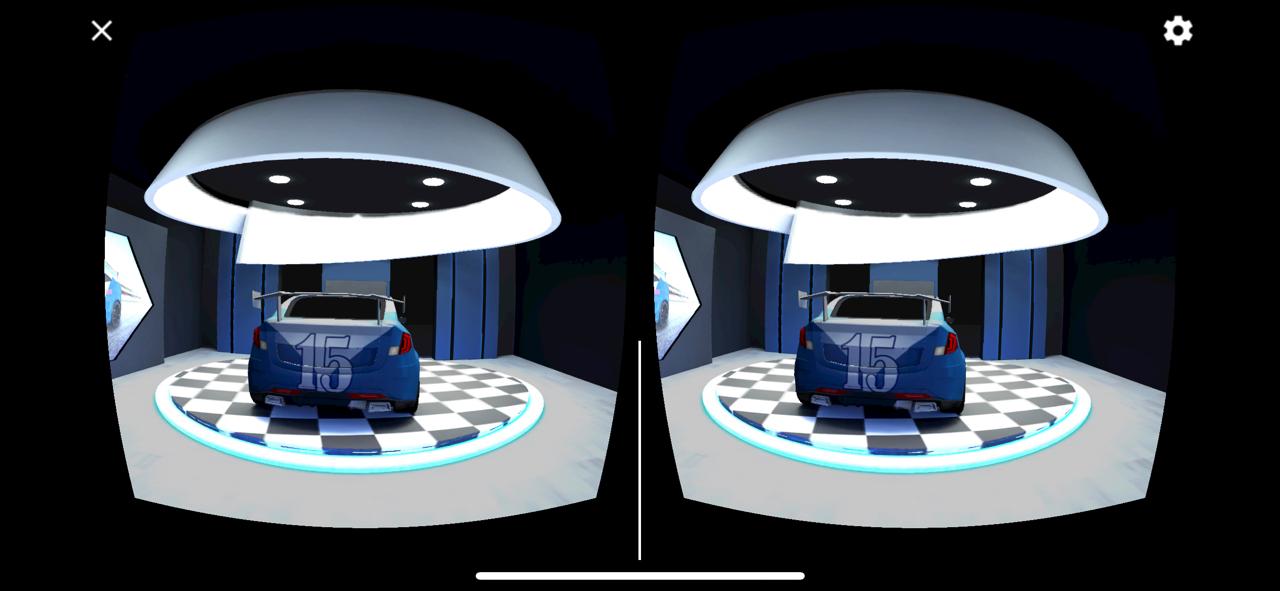
Exploring Key Applications of VR in School Education
- Science and Math Simulations: VR brings abstract concepts to life, allowing students to visualize complex formulas and scientific phenomena, making subjects like math and physics more comprehensible and engaging.
- Historical Reenactments: Through VR, students can witness historical events first-hand, understanding the context and significance of past occurrences in a way that books cannot convey.
- Language Learning: VR can immerse students in language-rich environments, improving language acquisition through practical usage and social interaction.
- Art and Creativity: VR offers tools for students to create art in three-dimensional spaces, pushing the boundaries of creativity and design.
SMACAR’s VR Educational Tools
We provide a suite of VR educational tools tailored to different subjects and learning objectives. Our tools are designed with the input of educators to ensure they meet curriculum standards and enhance teaching effectiveness.
Custom VR Content Creation
SMACAR specializes in custom VR content creation, allowing educational institutions to transform their traditional courses into interactive VR curriculums. This customized content is not only tailored to specific educational outcomes but also includes assessments and analytics to track student progress.
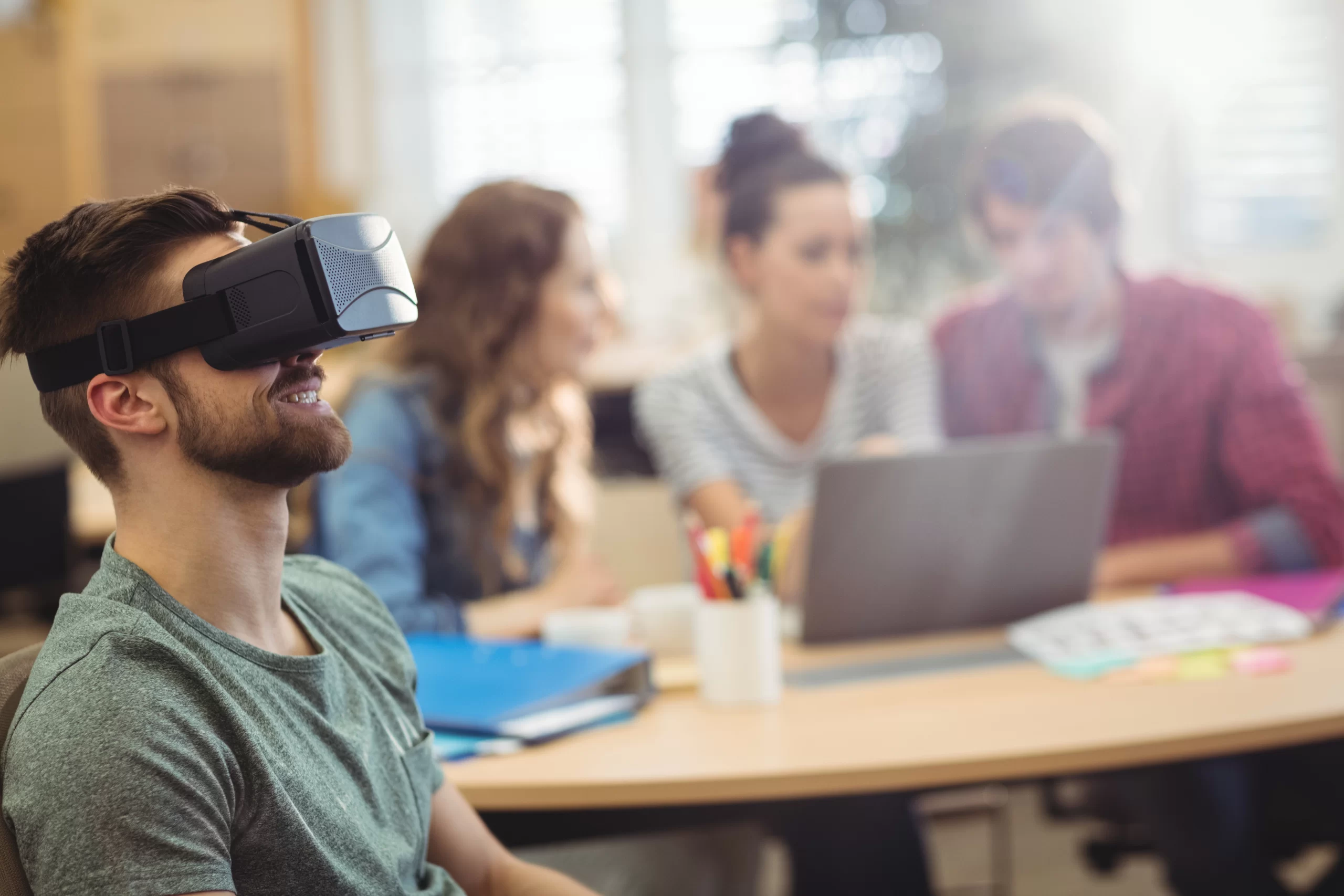
Training and Professional Development with VR
- Teacher Training: Equip educators with VR tools to enhance their teaching methods, allowing them to conduct VR classes effectively.
- Professional Skills Development: For higher education and vocational training, our VR simulations provide real-world experience in fields like engineering, medical, and more.
SMACAR’s Collaborative VR Learning Platforms
Our VR platforms support multi-user environments, enabling students and teachers to collaborate and interact in real-time, regardless of their physical location. These platforms foster a sense of community and teamwork essential for modern learning.
Future Directions of VR in Education
- Adaptive Learning Algorithms: Integrating AI with VR to create adaptive learning experiences that respond to the student’s individual learning pace and style.
- Mixed Reality Experiences: Combining VR with AR (Augmented Reality) to blend real-world elements with virtual ones, creating a hybrid learning environment.
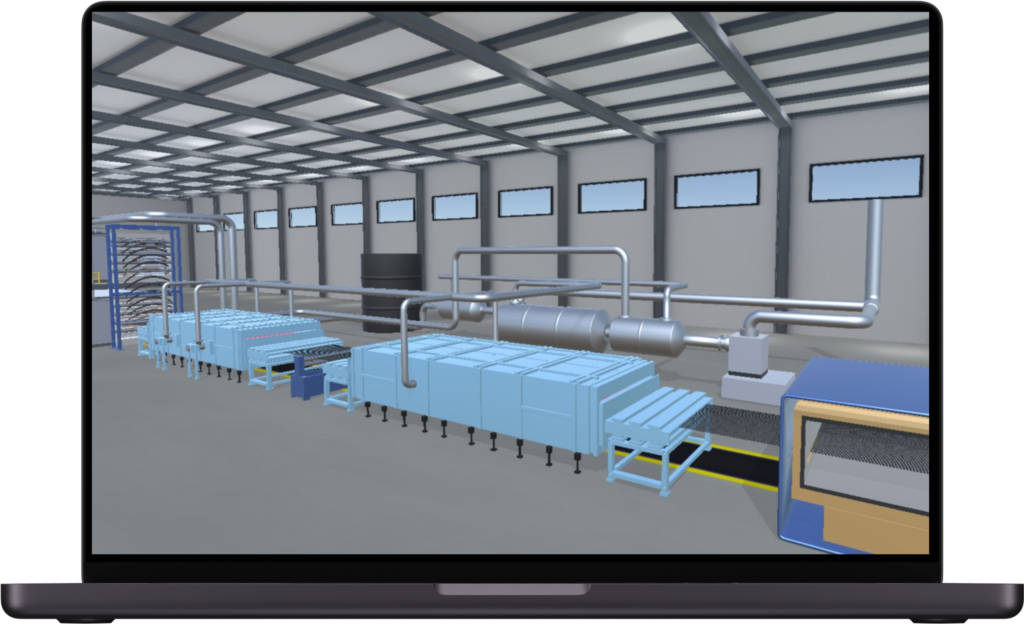
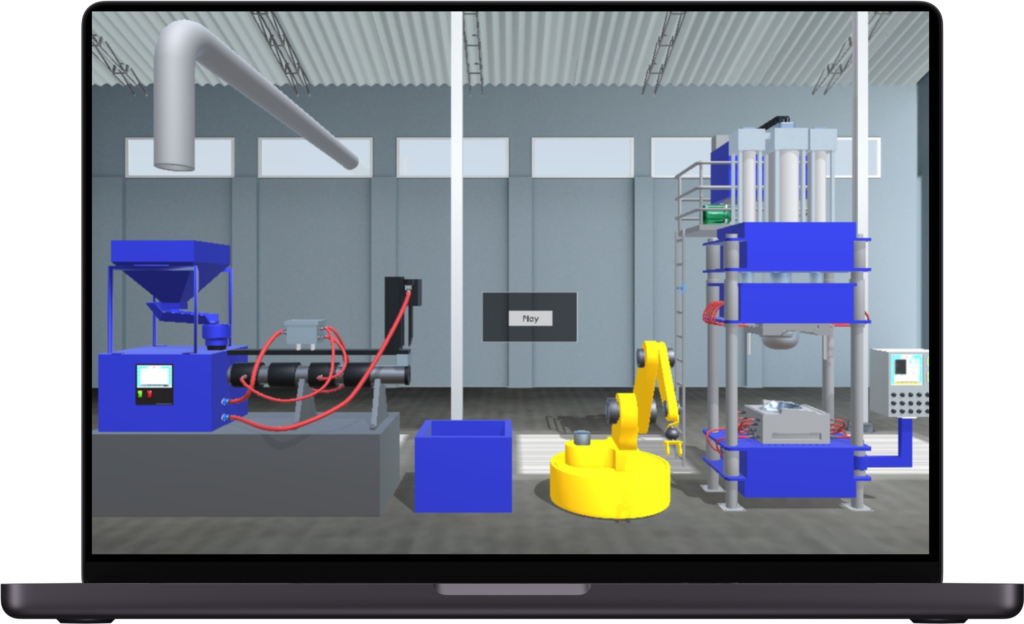
VR Training Revolution at UTRF by SMACAR Technologies
The University of Tennessee Research Foundation (UTRF) partnered with SMACAR Technologies to introduce Virtual Reality (VR) into their material science curriculum, aiming to enhance student comprehension of advanced composites manufacturing. SMACAR, leveraging their VR development expertise and Yaksha Visual Technologies’ 3D production skills, crafted realistic, interactive VR training modules that allowed students to virtually interact with manufacturing processes in a safe environment. These modules offered a more engaging learning experience and improved knowledge retention of complex concepts. The collaboration resulted in high-fidelity 3D models and interactive VR environments that received positive feedback from students for increasing engagement and understanding. This successful implementation at UTRF highlights the potential for expanding VR in educational settings, underscoring SMACAR’s commitment to evolving VR technology for educational enhancement.
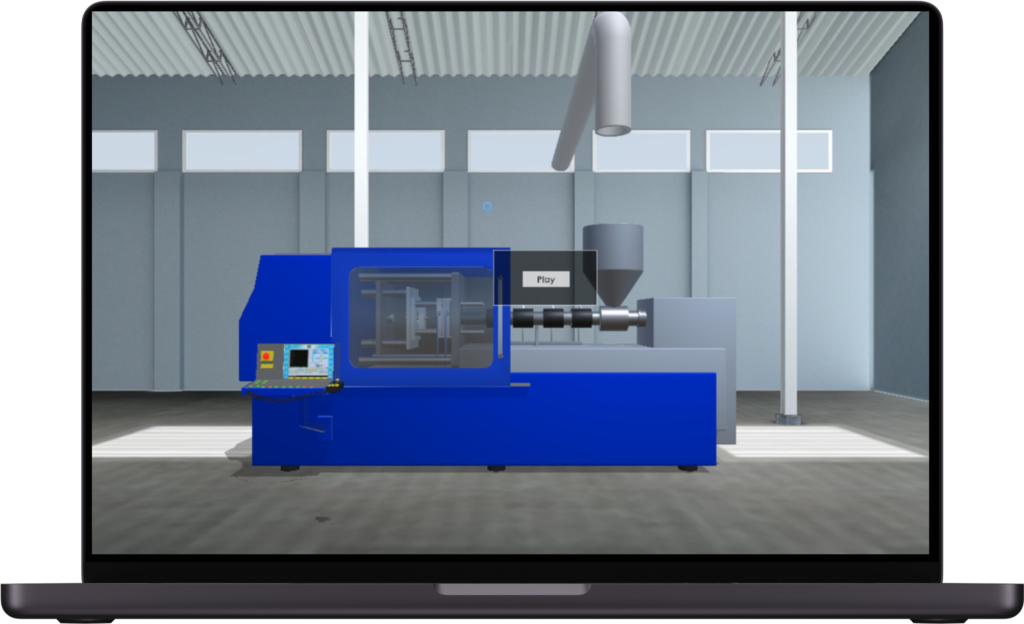
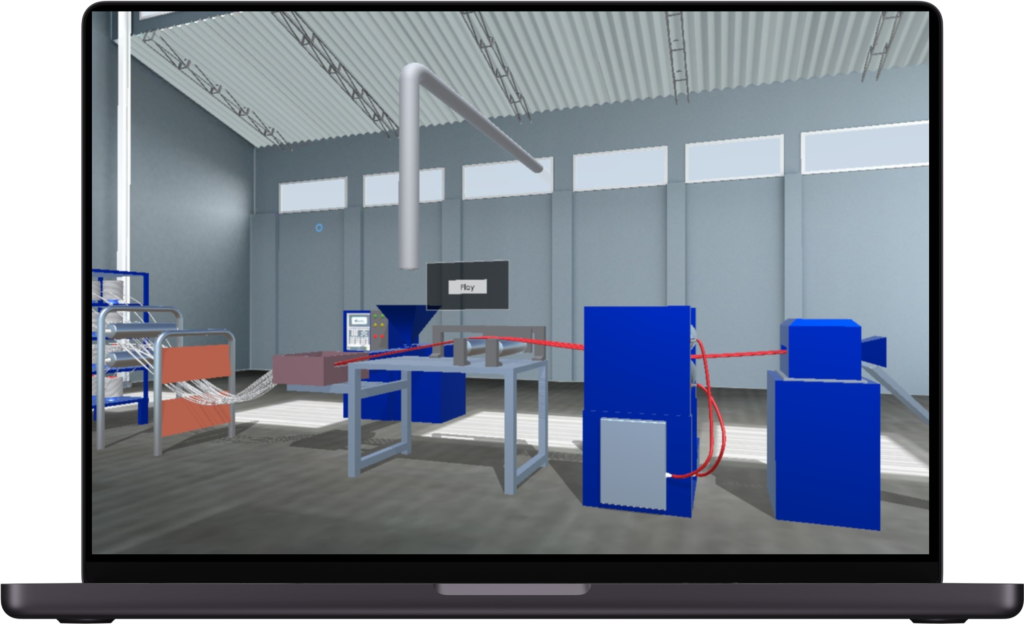
Conclusion
At SMACAR, we believe in the power of VR to transform education. Our innovative VR solutions are designed to make learning more engaging, effective, and accessible to all. Embrace the future of education with SMACAR’s VR technologies, where learning knows no boundaries.

